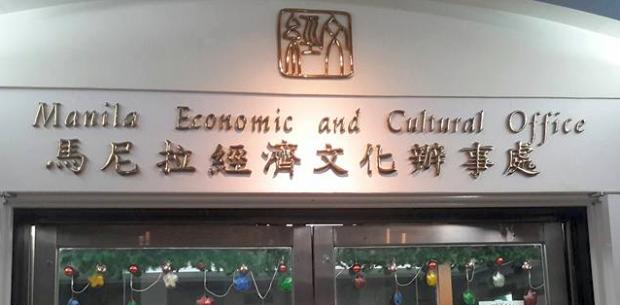Taiwan envoy urges PH to post DFA offical at MECO in Taipei
The Taiwanese representative to the Philippines appealed to the Philippine government to assign an official from the Department of Foreign Affairs (DFA) to the Manila Economic and Cultural Office (MECO) in Taipei.
Dr. Gary Song-Huann Lin said on Wednesday that a Philippine foreign affairs official at the de facto embassy in Taiwan would allow for better cooperation between the two countries, even in light of the “One China” policy pushed by Beijing.
“The Philippines so far has no DFA official in MECO. But they liaise well with the foreign affairs department,” Lin said in a public lecture on the bilateral relations of the two countries at the University of the Philippines in Diliman, Quezon City.
He noted that the Taiwanese government had always assigned professional diplomats to the Taipei Economic and Cultural Office based in Manila.
A career diplomat himself, Lin was assigned to the Philippines in September 2014.
Article continues after this advertisement“We are appealing to your government that while we are respecting the One China policy, we need to have some flexibility and more practical cooperation,” he said.
Article continues after this advertisementMECO, a non-stock and non-profit corporation formerly known as the Asian Exchange Center Inc., is the representative office of the country in Taiwan, in the absence of formal diplomatic relations between the two countries.
Still, despite the constraints by Beijing’s pressure on Taipei and its neighboring countries, Lin said the bilateral ties between Taiwan and the Philippines remain wide-ranging.
In 2016, Taiwan was the Philippines’ eighth largest trading partner and ninth export market.
The country is also eyed as a key partner under the Taiwanese government’s “New Southbound Policy,” which was announced in August under President Tsai Ing-wen.
The new policy is expected to forge closer trade relations and people-to-people exchange with 18 countries from South and Southeast Asia, including New Zealand and Australia.
Lin noted, however, that the southbound policy does not intend to clash with China’s “One Belt, One Road” strategy. Despite warming relations with China under the Duterte administration, he said he hoped for a balanced foreign policy with all neighboring countries.
In an interview with foreign reporters in Taipei, Lin Cheng-yi, first deputy minister for mainland China affairs, said the new policy was aimed at “market diversification.”
“Beijing will try to block our New Southbound policy only because they would like to see Taiwanese investment continue going to mainland China,” he said. “In the scale of gross domestic product, Taiwan simply cannot compete with mainland China, but [with the new policy,] we can add another dimension for Taiwan’s economic development.” /atm
